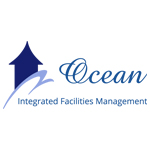The Fleet Manager has a clear understanding of company SMS and oversees their assigned fleet of vessels and is responsible for ensuring their safe, efficient, and cost-effective operation. This role requires a deep understanding of maritime operations, technical knowledge, regulatory compliance, and effective leadership. Here are the typical duties and responsibilities associated with this position
Functions and responsibilities
1. Fleet Operations Management:
(A) Develop and implement strategies to optimize the operation and performance of the global fleet, ensuring adherence to industry best practices and standards.
(B) Oversee vessel scheduling, routing, and voyage planning to maximize efficiency, minimize costs, and meet customer requirements.
2. Technical Maintenance and Repairs:
(A) Coordinate and supervise technical maintenance, repairs, and dry-docking activities for the assigned fleet, ensuring compliance with safety regulations and maintenance standards.
(B) Manage planned maintenance systems and work closely with technical teams to address vessel technical issues promptly.
3. Regulatory Compliance:
(A) Ensure the fleet's compliance with all relevant maritime laws, regulations, international conventions, and industry standards to maintain a high level of safety and avoid penalties.
(B) Collaborate with regulatory affairs teams to stay updated on regulatory changes and implement necessary adjustments within the fleet.
4. Cost Management and Budgeting:
(A) Develop and manage budgets for the fleet operations, including fuel costs, maintenance, repairs, insurance, and other operational expenses.
(B) Implement cost-saving measures and efficiency improvements to achieve financial targets and maximize profitability.
5. Safety and Security:
(A) Promote a strong safety culture and ensure compliance with health, safety, and security protocols across the fleet.
(B) Implement safety training programs and regularly conduct safety audits to identify potential hazards and mitigate risks.
6. Communication and Coordination:
(A) Foster effective communication and coordination among vessel crews, technical teams, shore-based staff, and other stakeholders to ensure smooth operations and timely issue resolution.
(B) Conduct regular meetings to align goals, share best practices, and address challenges within the fleet.
7. Performance Monitoring and Analysis:
(A) Establish key performance indicators (KPIs) to measure and monitor the fleet's operational performance, efficiency, and safety standards for team leaders on board and ashore.
(B) Analyse data and trends to identify areas for improvement, implement corrective actions, and optimize fleet performance.
8. Vessel Acquisitions and Dispositions:
(A) Collaborate with the sales and purchase team to assess and make recommendations for vessel acquisitions, sales, or disposals based on market conditions, operational requirements, and cost-benefit analyses.
(B) Participate in negotiations and decision-making processes related to fleet expansions or reductions.
(C) Follow Management of Change process on vessel acquisition and disposal.
9. Environmental Compliance and Sustainability:
(A) Ensure compliance with environmental regulations and industry sustainability initiatives, promoting responsible and environmentally friendly operational practices.
(B) Implement strategies to improve the fleet's environmental performance and reduce its carbon footprint.
10. Stakeholder Engagement:
(A) Engage with customers, charterers, vessel the company, and other stakeholders to maintain strong relationships and understand their requirements and expectations.
(B) Address concerns and feedback to enhance service quality and customer satisfaction.
The Fleet Manager's role is critical in efficiently managing the company's fleet, maintaining compliance with regulations, ensuring safety and environmental responsibility, and optimizing overall fleet performance and profitability.
Education and Qualifications
The applicant should possess the following qualifications
1) A degree in marine engineering or equivalent studies, and
2) A CoC Class 1 (Marine Engineer Officer), and
3) Have on-shore experience of at least 7 years in a similar or related position
Job-Specific Skills:
- Strong knowledge of bulk vessels’ technical requirements and voyage regulations
- Excellent project management skills
- Very good negotiation skills
- Very good people management skills
- Team work and cooperation
- Very good organisational skills
- Worldwide operations require fluency of the English language.
- Ability to speak either Russian, Ukrainian or Turkish in order to ensure efficient communication with on-board crew, or
- Fluency in Chinese to ensure efficient communications with suppliers and shipyards in China.
- PC literacy
























